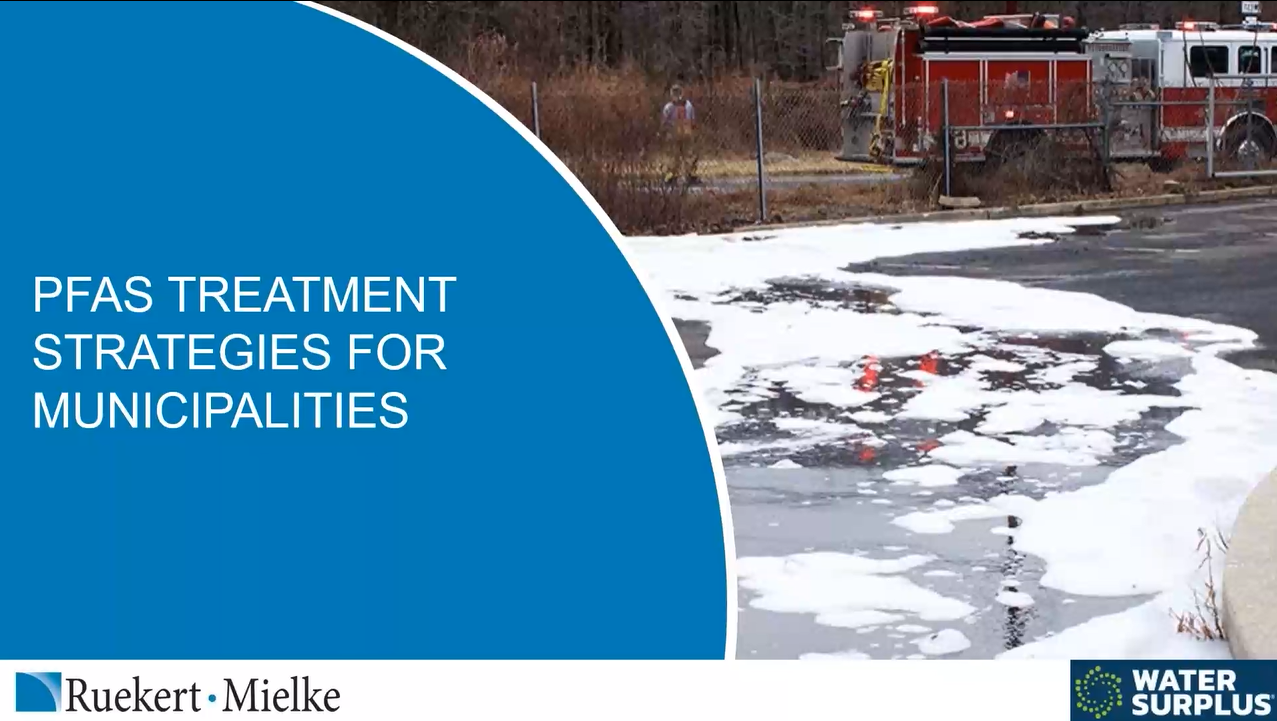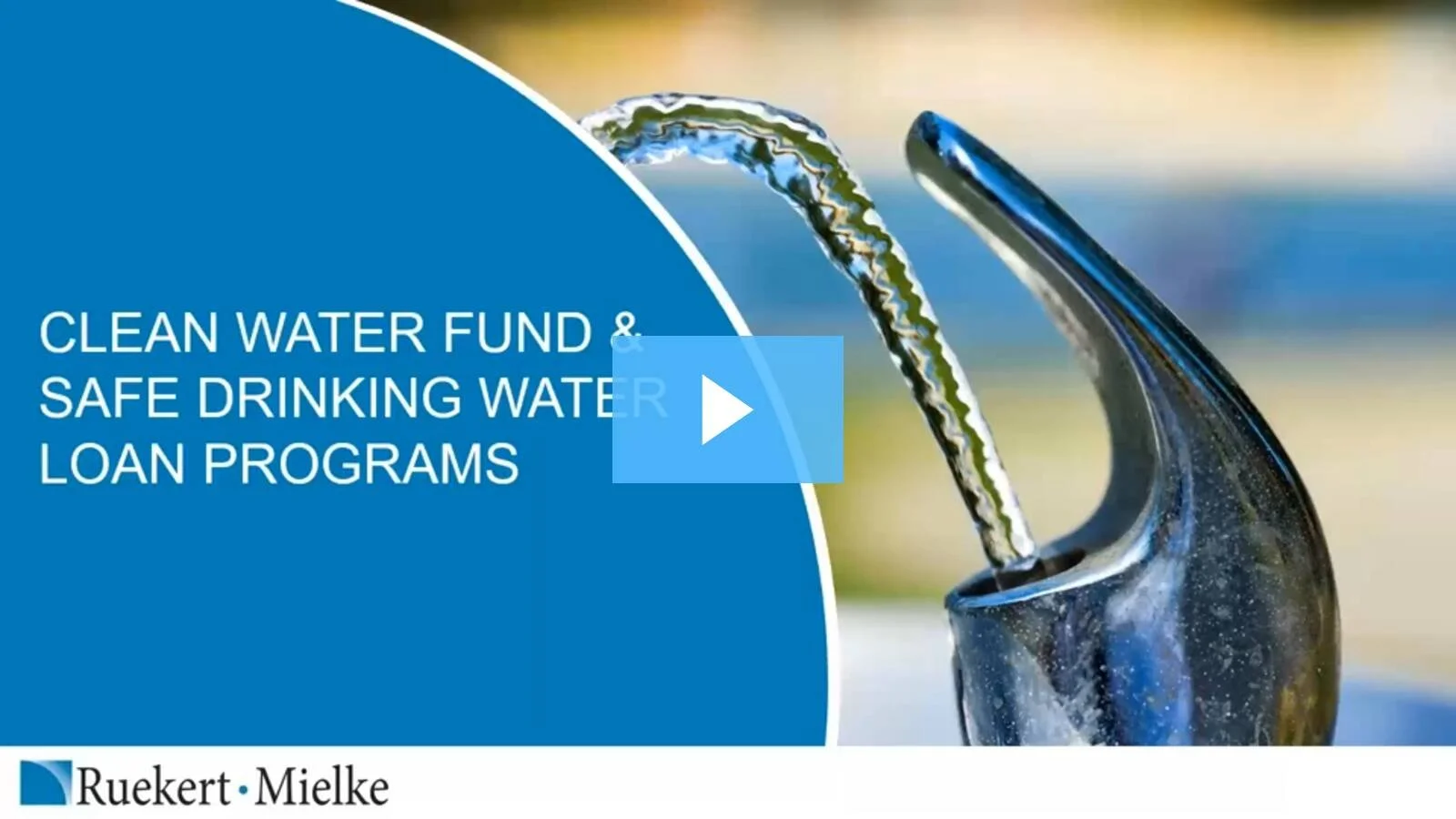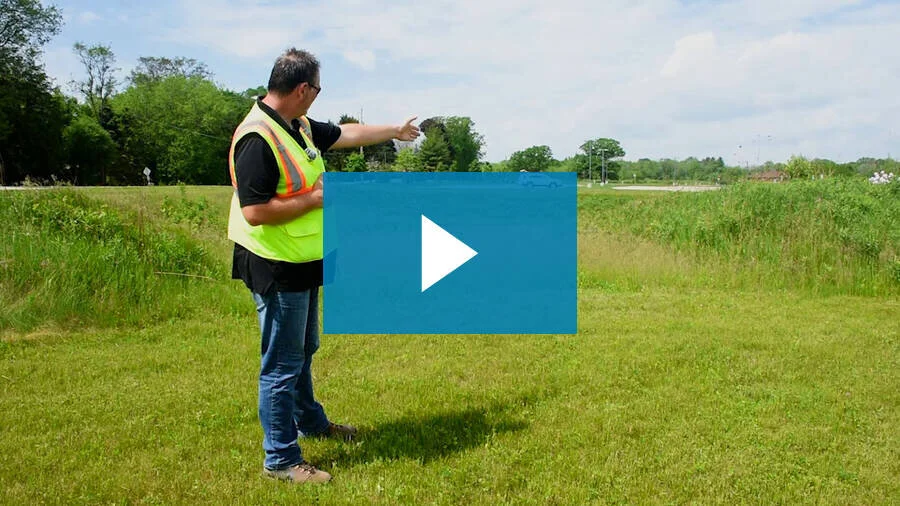Has your community ever considered using a stream to solve flooding and water quality issues? Discover how stream restoration can provide communities with water quality credits, stabilize eroding streams, increase flood storage, and enhance recreational opportunities.
Facing PFAS contamination in your groundwater drinking water system presents a daunting challenge for municipalities, threatening public health and presenting compliance issues. Attend this webinar where experts from R/M and Water Surplus will explore strategies and technologies for mitigating PFAS to meet regulatory compliance and community needs. Register now to discover how your municipality can transform your PFAS obstacles into a success story for a healthier future.
Topics Include:
• Compliance Options
• Considerations & Planning
• Treatment Methods & Technologies
• Funding Options
It’s been more than 20 years since the first TMDL was approved in Wisconsin and more than 10 years since TMDL compliance provisions started appearing in MS4 & WPDES permits. TMDL provisions in municipal storm water permits are driving significant changes to municipal storm water and water quality programs throughout the state. Without an in-depth understanding of all the potential compliance tools available, the cost for municipalities to meet the permit stipulations can be extreme.
Watch this on-demand webinar to learn proactive, creative TMDL compliance techniques which could reduce your future cost of compliance. Attendees will also get insight into what’s coming next for Wisconsin MS4 permits, compliance practices, and enforcement.
With the cost of debt so high, below-market interest rates and grants can save communities a lot of money. Learn about how to fund water and sewer projects through low-interest loans and grants through the state's environmental loan program. Watch this on-demand webinar to learn whether your projects are good candidates for one of these loans and whether you might qualify for a grant/principal forgiveness.
To reduce waterway pollutants, comply with MS4 permits, and meet TMDL goals, communities should regularly inspect and perform proper maintenance on all storm water management devices. Erosion, structure obstructions, and undesirable plant growth can all cause your system to perform poorly and leave you with high maintenance costs. Illicit discharge inspections are critical to identifying unwanted pollutants flowing through your storm sewer system.
Follow along with R/M’s Mark Bruns as he performs a storm water device and illicit discharge inspection, identifies common impairments, and shares best practices for maintenance.






